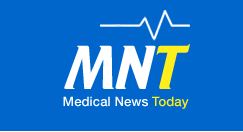Patients With A Rare Condition Associated With Autism Found To Have Altered Nerve-Fiber Pathways
[Source: Medical News Today]

It’s still unclear what’s different in the brains of people with autism spectrum disorders (ASDs), but evidence from genetic and cell studies points to abnormalities in how brain cells (neurons) connect to each other. A study at Children’s Hospital Boston now provides visual evidence associating autism with a disorganized structure of brain connections, as well as defects in myelin — the fatty, insulating coating that helps nerve fibers conduct signals and that makes up the brain’s white matter.
Researchers led by Mustafa Sahin, MD, PhD, of the Department of Neurology, Simon Warfield, PhD, director of the Computational Radiology Laboratory, and first author Jurriaan Peters, MD, of both departments at Children’s, used advanced magnetic resonance imaging (MRI) to image the brains of 40 patients (infants to age 25) with tuberous sclerosis complex and 29 age-matched, healthy controls. Tuberous sclerosis is a rare genetic condition often associated with cognitive and behavioral deficits, including ASDs about 50 percent of the time.
“Patients with tuberous sclerosis can be diagnosed at birth or potentially before birth, because of cardiac tumors that are visible on ultrasound, giving us the opportunity to understand the circuitry of the brain at an early age,” explains Sahin. “Our ultimate goal is to use imaging in infancy to find which tuberous sclerosis patients are at high risk for autism so we can intervene early. This may have implications for autism in patients without tuberous sclerosis as well.”
Read the Rest of this Article on Medical News Today
PediaStaff is Hiring!
All JobsPediaStaff hires pediatric and school-based professionals nationwide for contract assignments of 2 to 12 months. We also help clinics, hospitals, schools, and home health agencies to find and hire these professionals directly. We work with Speech-Language Pathologists, Occupational and Physical Therapists, School Psychologists, and others in pediatric therapy and education.
